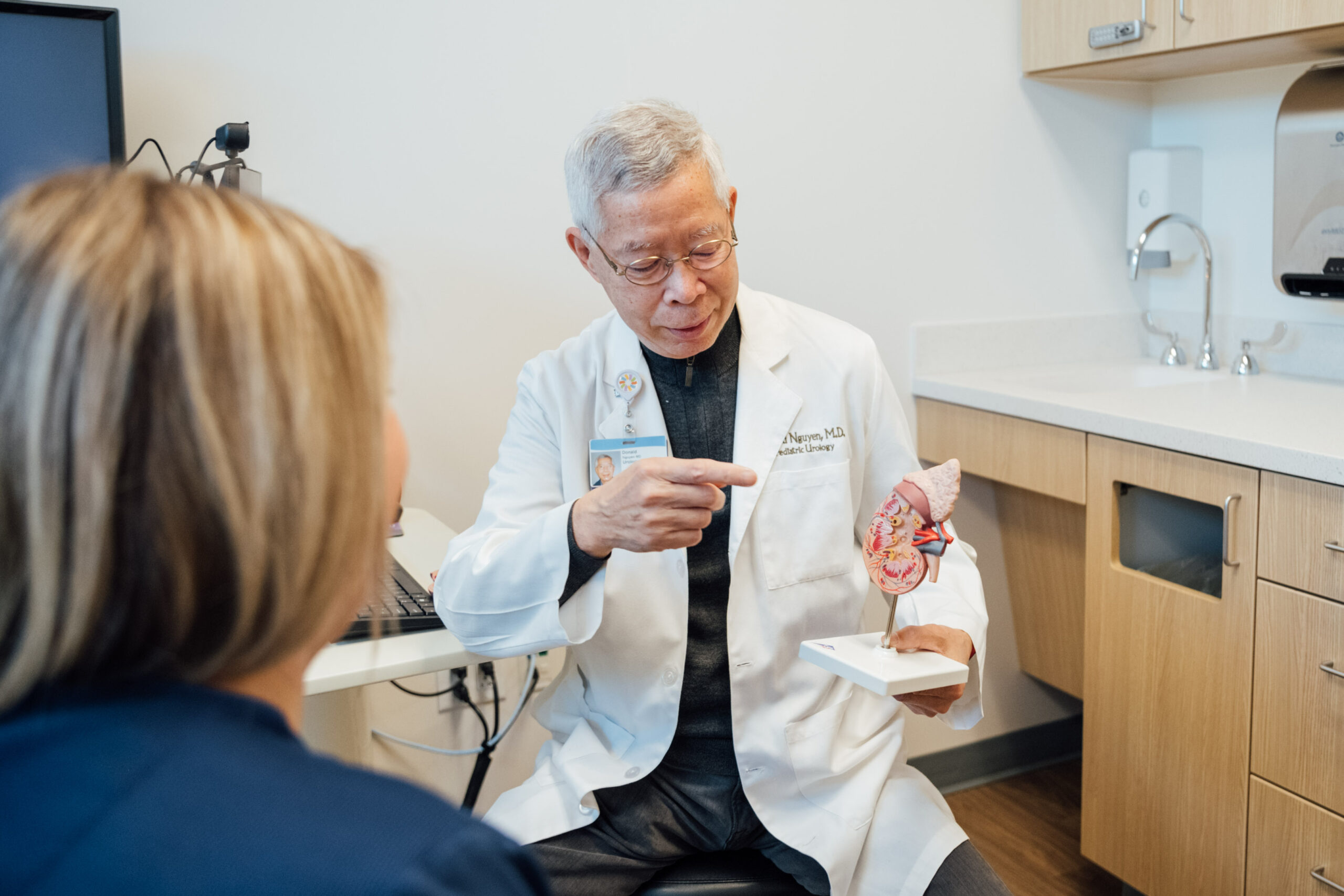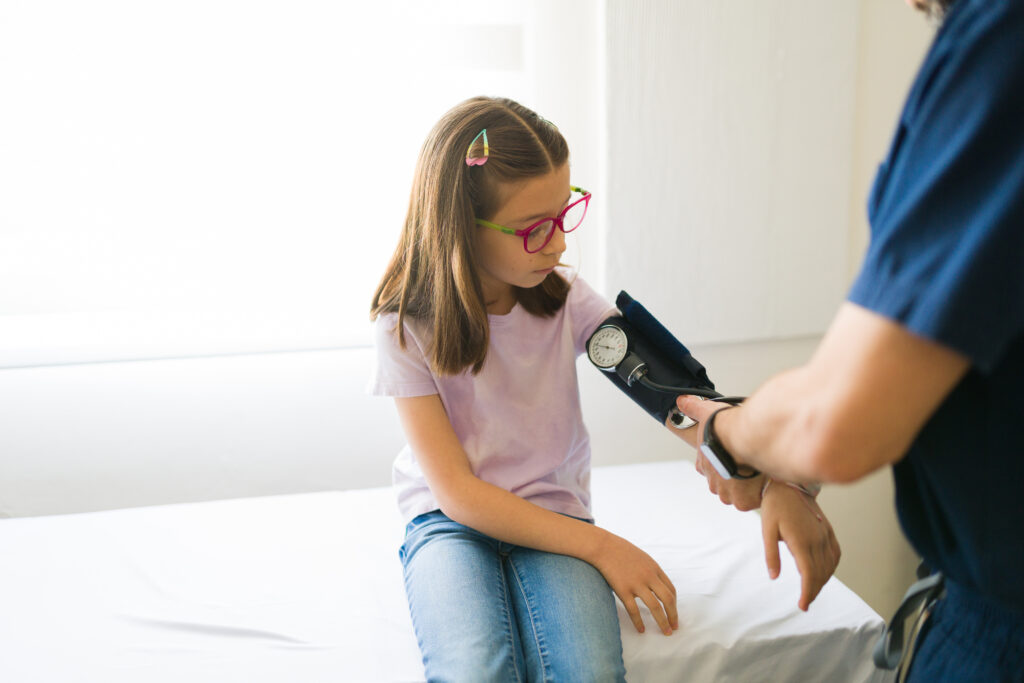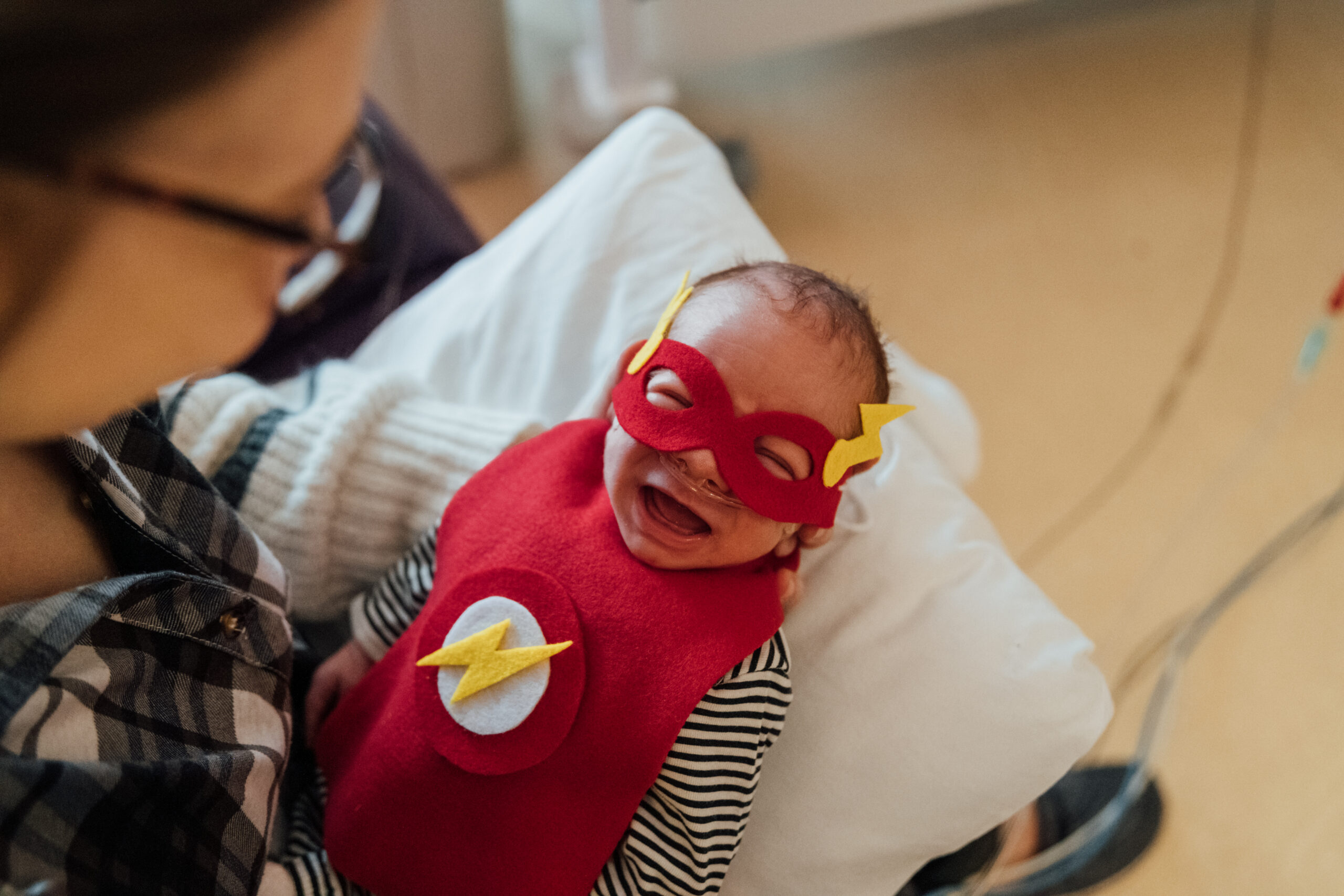nephrology
Dayton Children’s nephrology team treats kidney disease, high blood pressure, and urinary tract concerns in kids with expert care.


understanding pediatric nephrology
Pediatric nephrology focuses on the health of a child’s kidneys, urinary tract, and how the body balances fluids and electrolytes. At Dayton Children’s, our nephrology specialists diagnose and treat conditions that range from common urinary issues to complex kidney disease.
We provide comprehensive care for infants, children, and teens, including access to advanced diagnostic testing, dialysis, and blood pressure monitoring. When needed, we collaborate closely with pediatric urologists and surgeons and more to ensure each child receives seamless, coordinated care.
nephrology care at Dayton Children’s
Our team offers a wide range of services, including specialized testing, dialysis, infusions, and family education. Depending on your child’s needs, care may include:
- Ambulatory blood pressure monitoring and kidney biopsy
- Dialysis options, including peritoneal dialysis, hemodialysis, and continuous venovenous hemofiltration (inpatient only)
- Urodynamic testing for voiding dysfunction
- Infusion therapies (IV medications, nutrition support, and charcoal hemoperfusion)
- Parent and caregiver education and support

our nephrology specialists
Our pediatric nephrologists specialize in diagnosing and treating kidney disorders and fluid or electrolyte imbalances in children of all ages. With expertise in both common and complex conditions, they create personalized treatment plans and work closely with other pediatric specialists—including urologists and surgeons—to ensure each child receives coordinated, comprehensive care.
pediatric nephrology conditions we treat
programs & clinics
Specialists at Dayton Children’s work closely with physicians throughout our community to provide the best possible care for babies during pregnancy and in the early stages of life.
When problems are detected during pregnancy, advanced diagnostic testing, genetic counseling and advanced treatment during pregnancy and after birth are available to you. Many of our consults can be a virtual visit.
news and blogs
Stay up-to-date with the latest insights from Dayton Children’s. We’re always working to share helpful, real-world content for families navigating nephrology care.
patient stories
Our patients motivate everything we do. Whether it’s managing a kidney disorder or getting answers for urinary or bladder concerns, our patients and families inspire us every day. These stories offer hope, guidance and reassurance that we are here for your child every step of the way.
Explore how Dayton Children’s nephrology team has gone above and beyond for kids just like yours.
Before your appointment, please:
- Arrive for all appointments at least 20 minutes early to allow for registration.
- Bring all insurance cards to each appointment.
- Bring a list of the child’s medications, symptoms, and care needs to all visits.
your visit and treatment plan
At your visit, the physician will do a full physical exam. Depending on your child’s diagnosis and treatment plan, care may be provided when the child is hospitalized or through one of the outpatient clinics. Your child’s care will be discussed with you. We encourage you to ask questions if you do not understand any part of the diagnosis and treatment. Each child will receive a treatment plan based on their specific needs.
need kidney care for your child?
If your child is experiencing kidney problems, high blood pressure, or urinary concerns, Dayton Children’s nephrology team is here to help. Ask your primary care provider for a referral or schedule an appointment by calling 937-641-4000.
